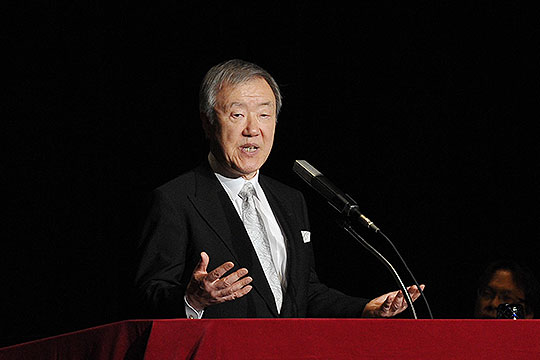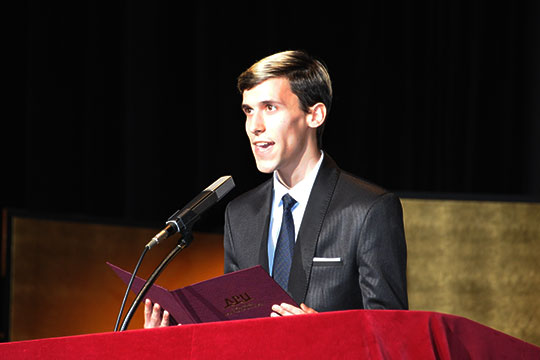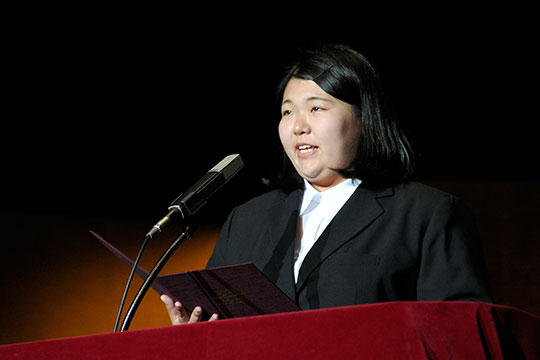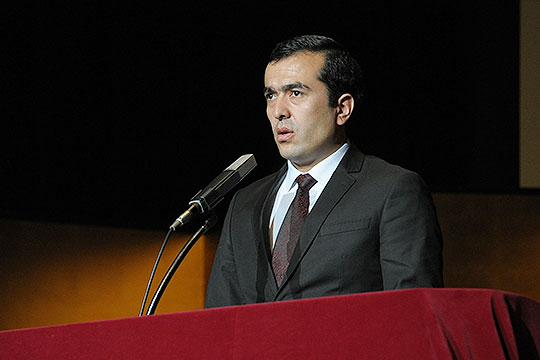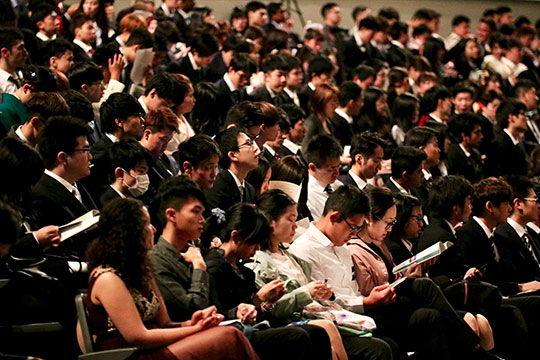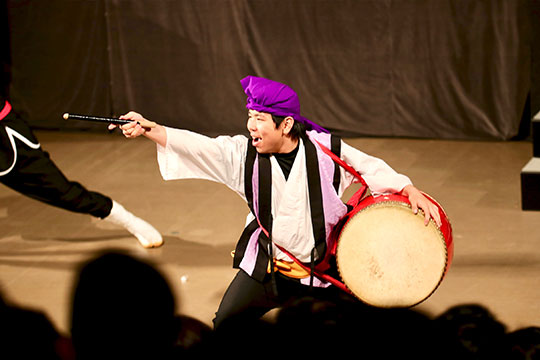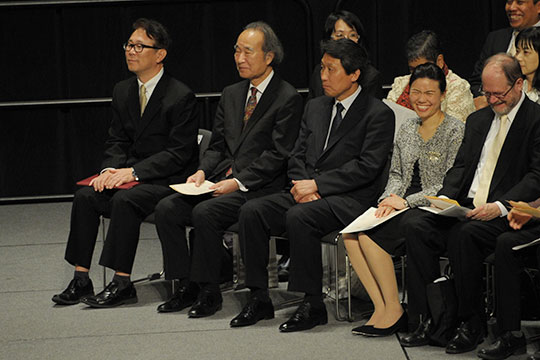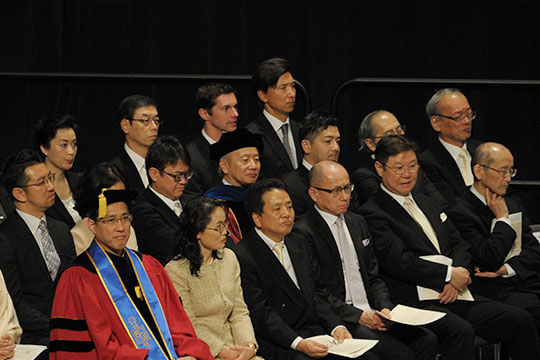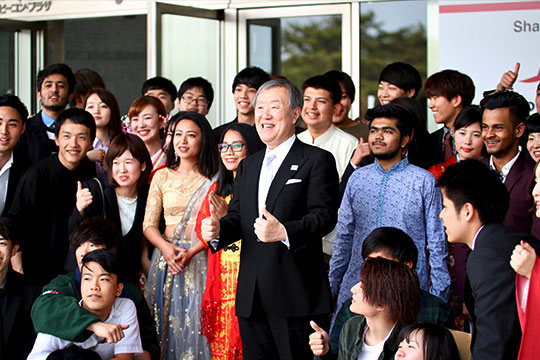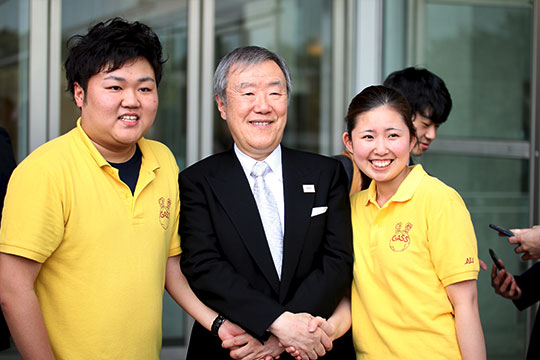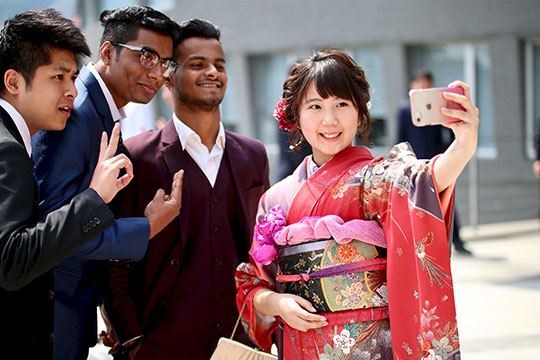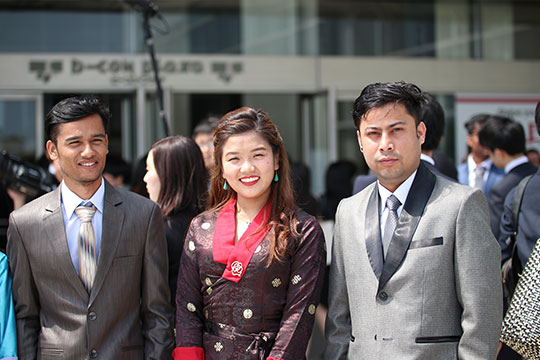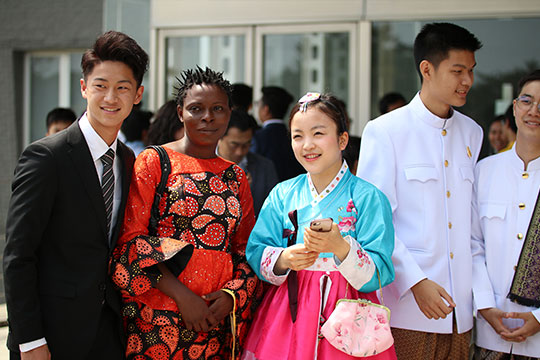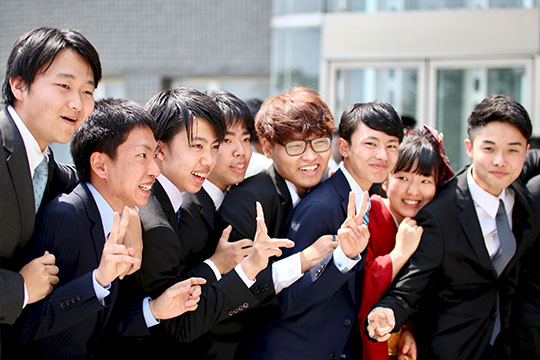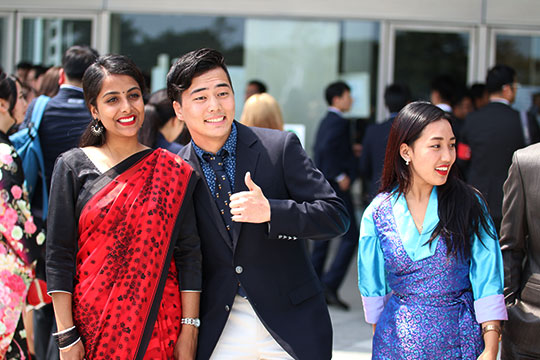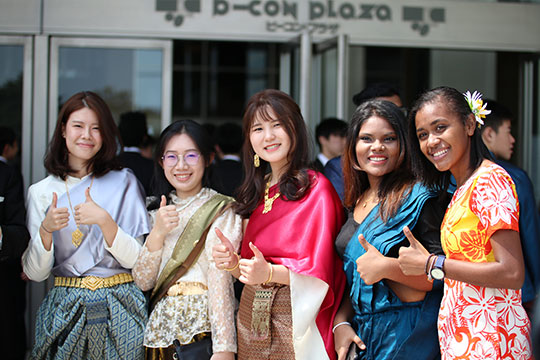Welcome new students and congratulations on your admission!
On behalf of everyone at APU, I would like to take this opportunity to welcome all of the parents and guardians in attendance and congratulate you on the admission of your children.
I would like to start by asking you a question. What kind of place do you think a university is? That’s right. A university is a place for studying. I remember reading a Tweet that said this: “American university students read an average of 400 books over four years, but Japanese students read fewer than 100. If an American and a Japanese student worked at the same company, it’s obvious who would get the more interesting assignments.” I agree with this sentiment. You cannot lead an interesting life without studying. So, how should you go about studying? My mantra is “people, books, and travel.” People get smarter with experience, and this means meeting many people, reading many books, and traveling far and wide. Luckily, APU attracts students from 90 countries and regions, which makes it what I like to call a “Young United Nations.” There is no other university campus in Japan with this much diversity. From this day forward, you will spend your time on this campus with classmates from all over the world. You can learn many things from other people. By making friends with people from other countries, you can learn their views on things, hear how they plan to spend their time at university, and listen to their plans for the future. Of course, this goes both ways. By talking to each other honestly, you and your friends can deepen mutual understanding and help each other grow.
As for books, I definitely hope you will try to read several of the classics. It goes without saying that books that are considered classics even after several dozens or several hundreds of years are bound to be excellent. The human brain has not evolved much in over 10,000 years. The emotions that we express and the judgments we make are no different from those of someone from long ago. This is why books that were excellent in the distant past remain excellent to this day. “How Do You Live?”, a novel by Yoshino Genzaburo, is now a best seller in Japan. It has been turned into a comic book, so I think many people in Japan have read it. But this book was first published over 80 years ago in 1937. In fact, this is one of my favorite books. Inside your program, you will find a list of classics I would like all of you to read, and I hope you will try to read some of these during your time here at APU.
Next, let me touch on travel. In short, travel means going places. If someone tells you that a new bakery has opened and it’s good, you cannot know if it’s good until you actually go there, buy some bread, and try it for yourself. This is why I strongly encourage all of you to go on study abroad or have some kind of overseas experience. Now that you’re at APU and have the chance to make friends from 90 countries and regions, I think it is only natural to want to go see where your friends are from. Life is long, but your time at university is when you have the most free time. I hope you will take advantage of this free time and go see the world. As the old proverb goes, “a picture is worth a thousand words.” I am certain that travel will change your life. We have student exchange and many other kinds of programs to help you go see the world. The world is a big place, and I hope you will have the courage to get out there and see it.
What exactly can you learn from people, books, and travel? Well, let me answer that by asking you another question. Which would you rather eat, something delicious or something awful? Please raise your hand. Of course, you would rather eat something delicious. But what makes delicious food delicious? In my opinion, you have to gather up a wide variety of ingredients and prepare them skillfully. Next question: Which would you rather lead, a fulfilling life or an unfulfilling one? Of course, you would rather lead a fulfilling life. But what makes a fulfilling life fulfilling? In my opinion, you have to gain a breadth of knowledge and learn how to think on your own. Learning from people, books, and travel not only provides you with knowledge, it helps you hone your ability to think. So, how do you prepare delicious food? First, you follow the recipe and then make minor adjustments. The same principle applies to thinking. Thinking for yourself starts by imitating the patterns and methods people from different cultures use to think and conceive ideas. In this sense as well, you are very lucky to be here in this “Young United Nations.”
There is no other university like APU in the world, not just because it attracts students from 90 countries and regions, but because it provides education in both Japanese and English. The world opens up even more for people who become bilingual, and especially for people who can master English, the world’s lingua franca. I hope all of you entering APU as Japanese-basis students will do your best to improve your command of English.
And now, for my final question. Please raise your hand if you have not organized the drawers in your desk or dresser in over a year. As you can see, almost none of you raised your hand. So, why do we organize the things in our drawers? To make them easier to access, of course. Likewise, there is no point to learning from people, books, and travel if you cannot access what you’ve learned when you need it. So, how can we organize the “drawers” in our heads? The trick is to put things in your own words. If my ideas about people, books, and travel have resonated with you, start telling your friends. Then, if you write about the idea in your own words on your blog or Facebook page, you will start to get a better picture inside your head. You can only remember what you’ve put in your head by creating output.
I was only just appointed to the position of president this January, so like you, I am new here. I look forward to working with you to make APU an even more fun and exciting place to learn.


